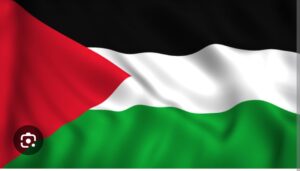 UNIVERSITY STUDENTS OF THE WORLD
UNIVERSITY STUDENTS OF THE WORLD
University students play a crucial role in society, as they are the future leaders and change-makers. When atrocities occur in places like Palestine & Gaza, it is important for individuals to speak out against these injustices. However, it is not always the responsibility of university students to take on this noble mission, as they are not elected officials or politicians. Instead, it is the duty of elected leaders to mobilize the public for the defense of the country, its people, institutions, values, and the overall well-being of the community.
In many cases, elected leaders may fail to fulfill their responsibilities and roles in safeguarding humanity and human rights. This failure can lead to a sense of frustration and helplessness among the general public, including university students. As a result, these students may feel compelled to stand up and speak out against atrocities, even though it is not their primary responsibility. This sense of duty arises from a deep-seated belief in the importance of standing up for what is right and just, regardless of one’s official role or title.
When university students do take a stand against atrocities such as those in Gaza, they are often avoiding acting as spectators or accomplices with the perpetrators of these acts. This is because their elected leaders have not taken decisive action to address the issues at hand, leading to a sense of complicity in the ongoing violence and oppression. By speaking out against these injustices, university students are working to break this cycle of inaction and complicity, highlighting the urgency and necessity of standing up for human rights and dignity.
Students of Africa, Asia, America ( south & north), and Europe. must stand to support US students to successfully ensure the desired purposeful and dignified objective.
The situation in Gaza and Palestine is characterized by decades of premeditated killings, ethnic cleansing, genocide, and a permanent occupation that obstructs self-determination and freedom. This ongoing oppression has deprived the people of Gaza and Palestine of the basic rights and freedoms necessary for a decent and dignified life. By standing up to speak against these atrocities, university students are drawing attention to the urgent need for justice, equality, and respect for human rights in the region and the globe.
The actions of university students in speaking out against atrocities in Gaza serve as a powerful reminder of the moral and ethical responsibilities that come with being part of a global community. While it may not be their official mission or duty to address such issues, their courage and determination in standing up for what is right inspire others to do the same. By raising awareness all over the world and advocating for change, these students are contributing to a broader movement for justice and human dignity.
It is essential for university students to understand and then convey the complexities and nuances of the situation in Gaza and Palestine in order to effectively advocate for change. By engaging with historical, political, and social contexts, they can better grasp the root causes of the atrocities and oppression faced by the people of Gaza/Palestine. This knowledge enables them to be informed and make all informed and enable them take strategic and bold decisions in their advocacy efforts, ensuring that they are grounded in a deep understanding of the issues at hand.
In addition to speaking out against injustices in Gaza/Palestine,, university students can also take practical action to support the cause of justice and human rights. This may include participating in grassroots movements, organizing peaceful protests and rallies, writing letters to elected officials, and collaborating with like-minded individuals and global organizations. By harnessing their collective power and resources, university students can effectively amplify their voices and push for meaningful change in the region and even the world.
It is important for university students to recognize their own privilege and positionality in advocating for justice and human rights in Gaza/Palestine. As individuals with access to education, resources, and networks, they have a unique platform and opportunity to make a difference. By leveraging their privilege for the greater good, university students can help amplify the voices of marginalized communities and advocate for systemic change that addresses the underlying causes of injustice and oppression in Gaza/Palestine.
In standing up against atrocities in Gaza/Palestine, university students are also standing up for their own values and beliefs as members of a global community. By reaffirming their commitment to human rights, dignity, and justice, they are setting an example for others to follow. In doing so, they are creating a more just, compassionate, and inclusive society that upholds the fundamental rights and freedoms of all individuals, regardless of their background or circumstances.
Ultimately, the actions of university students in speaking out against atrocities in Gaza/Palestine reflect a broader commitment to justice, equality, and human rights. By courageously raising their voices and taking a stand against occupation, oppression and violence, these students are embodying the principles of solidarity, compassion, and social justice. Their advocacy serves as a powerful reminder of the importance of standing up for what is right, even in the face of adversity and opposition. Through their collective efforts, they are contributing to a more just and equitable world for all.




